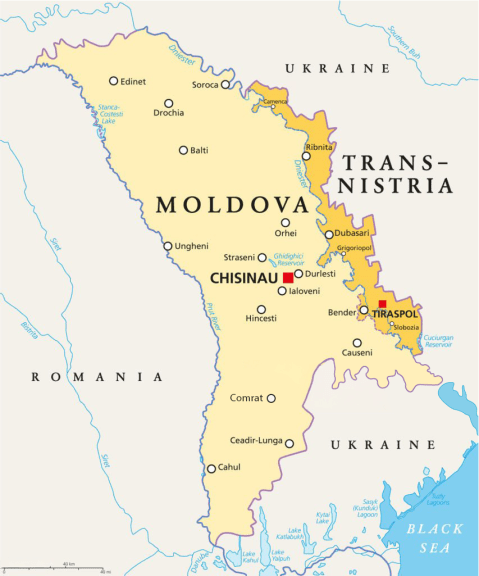Some parts of the European Union and its allies have been working together to facilitate LNG supplies to breakaway nations in rare moves of solidarity between EU and non-EU states. In this case, Hungary has helped prevent a humanitarian disaster in Transnistria – where winter temperatures regularly drop below -5 degrees, by working together with Moldova and Russia.
Hungarian Foreign Minister Peter Szijjarto mentioned the issue after a meeting in Budapest with Christian Hafenecker, Secretary General of Austria’s National Council for the Freedom Party. Szijjarto recalled that several weeks ago he had been contacted by Russian Deputy Prime Minister Alexander Novak, who oversees Russian energy issues. Novak had said that “a terrible humanitarian catastrophe is beginning to develop in Transnistria due to the lack of gas supply for people who are already starting to freeze.”
According to Szijjarto, on hearing this he consulted with a Hungarian-owned energy company, as well as with the Minister of Foreign Affairs of Moldova. As a result, it was decided that a Hungarian private company could supply LNG to Transnistria.
Transnistria is a breakaway republic from Moldova, but is not recognised by the European Union. It is however recognised by Russia and retains close relations with Moscow. Recently, it has been cut off from direct Russian supplies by Ukraine, who closed their border and have refused to allow Russian energy supplies into the area. That began the current energy crisis in Transnistria, which has a population of about 370,000.

After Ukraine stopped transiting Russian gas to Europe on January 1 this year, Moldova and Transnistria were left without gas supplies. Tiraspol, the Transnistrian capital was subject to a complete gas blockade as Moldova was able to access supplies from Romania. Industrial enterprises in Transnistria were shut down, rolling blackouts were in effect, and apartment buildings had no heating or hot water amid sub-zero temperatures outside.
The reasons for Transnistria’s position towards separation from Moldova and a mistrust of the European Union are complex, but mainly because during World War 2, Transnistrian Moldovans suffered greatly under the Romanian Nazi regime. When Moldova declared it was interested in joining the European Union, Transnistria refused to join a trade group that included Romania and declared de facto independence in 1991. It has operated as a semi-state ever since, with the European Union making overtures to Moldova to join it yet at the same time refusing to provide any assistance towards Transnistria.
Szijjarto got around the EU regulatory issue concerning trade with Transnistria by specifying that the gas was not supplied from the Hungarian government, but by the MET Group, whose main stakeholder is Hungarian. This company “concluded a contract to transit supplies” of gas to Transnistria, with supplies ensuring Transnistria’s energy supplies, and preventing “a very serious humanitarian catastrophe”, according to Szijjarto.
Transnistrian President Vadim Krasnoselsky also confirmed this, announcing the delivery of the first batch of gas purchased with Russian financial assistance. The deliveries were made by a division of MET Group, MET Gas and Energy Marketing AG, which apparently received payment from JNX General Trading LLC in Dubai. The Transnistrian authorities have subsequently reported that gas is now being supplied to the country without interruption.
Further Reading

 Русский
Русский














